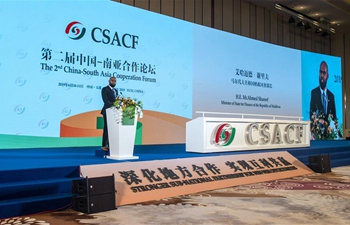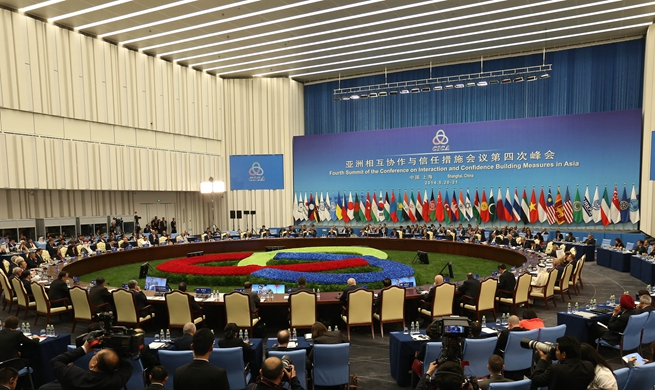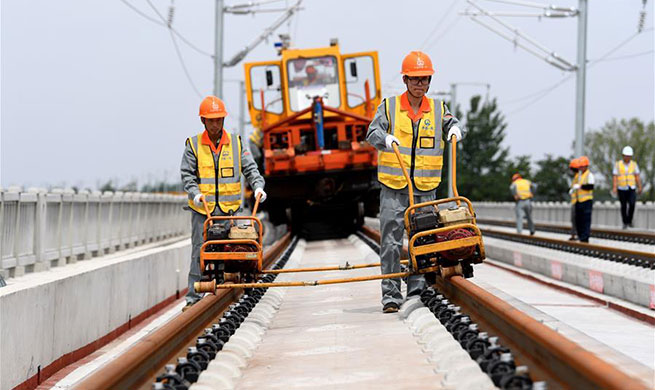ATHENS, June 11 (Xinhua) -- Greece is an increasingly attractive destination for investments, yet challenges remain, according to a survey presented on Tuesday at an investment forum in Athens.
According to the survey, the absence of a stable legal and regulatory framework and the delays in justice kept foreign direct investments from growing faster.
In 2018, the year Greece completed its third bailout program, net foreign direct investments in the country expanded by 12.5 percent from 2017 to reach 3.6 billion euros (4.1 billion U.S. dollars), rising for a third year in a row, Bank of Greece data show.
A survey by Metron Analysis presented at the InvestGR forum on Tuesday showed that 60 percent of the chief executive officers of 35 multinational companies active in Greece say it is likely their corporation will implement further investments in the country, up from 53 percent in the same survey last year.
In their vast majority the respondents expressed their optimism on the Greek economy in the next five years and their belief Greece will continue to improve as an investment destination over the next few years.
The main sectors seen as attractive for investors in Greece, according to the survey, are tourism, food catering, education, the primary sector, energy, health services, transport and real estate.
Nevertheless, there are several factors in the Greek economy that slow down inbound investments and are rated negatively by the CEOs.
The administrative and taxation frameworks, the perception of corruption, the speed of delivery of justice, and the limited research and development, are among the most important ones.
A separate survey of 40 CEOs of multinationals in Greece presented at the same forum showed that what foreign companies require to invest in Greece are economic, social and political stability, an investment-friendly tax system, faster judicial and arbitration procedures, speedy licensing and less bureaucracy.
According to the survey, CEOs also suggest policies to employ, attract and train human resources, a state structure for the active attraction of private investment, infrastructures, encouraging biggest business schemes such as clusters and cooperatives, and the streamlining of the credit sector.













